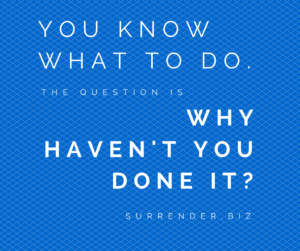Most job descriptions are an unnecessary waste of time and are holding people back.
There . . . I said it.
Just like I said recently to a professor who teachers Hospitality Supervision.
As you might expect, he did not agree with me. But we had a respectful conversation in front of this class.
When you hire smart people and give them a little more responsibility than they think they can handle, good things are going to happen. Job descriptions can actually lower expectations because they encourage people not go beyond the boundaries of their position, when in reality they have a lot to contribute.
Which is not to say that there aren’t situations that are in disarray or confusion, or require a new way of doing things. In those cases, job descriptions can help people by creating order and structure. But it’s the exception, not the rule.
Healthy work environments have people who are constantly asking to do more, or who are being prompted about what new things they might like to do. This goes for management teams and all the way through the ranks.
You know the line employee who is always suggesting better ways of doing things? The one who management thinks is a real nuisance and ought to start sticking to their work? It might just be that this is the person who is the true management candidate of the future.
They are thinking, they see the big picture.
I made this point in a meeting with one of my corporate clients who is on a fast-growth curve. The founder lit up and said, “That was me when I was in the kitchen! I was always suggesting things but they seldom listened.” Today, he is nationally recognized for outstanding concept creation and owns more than a dozen restaurants.
None of this was in his job description.


